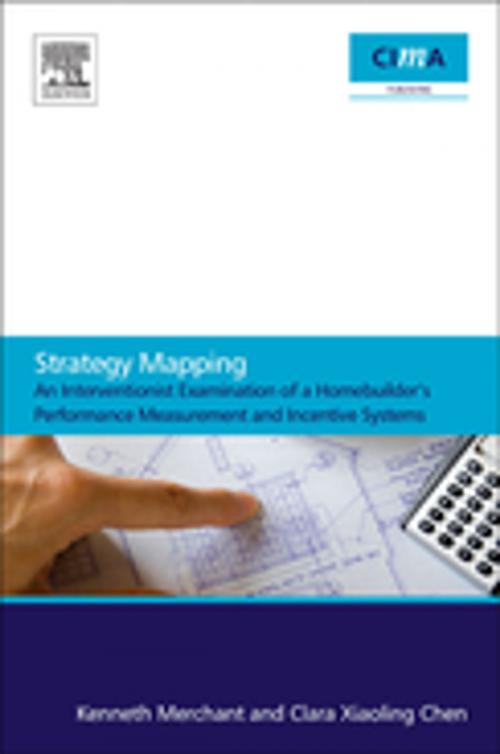Strategy Mapping: An Interventionist Examination of a Homebuilder's Performance Measurement and Incentive Systems
Business & Finance, Accounting, Management| Author: | Kenneth Merchant, Clara Xiaoling Chen | ISBN: | 9780080965956 |
| Publisher: | Elsevier Science | Publication: | January 18, 2010 |
| Imprint: | CIMA Publishing | Language: | English |
| Author: | Kenneth Merchant, Clara Xiaoling Chen |
| ISBN: | 9780080965956 |
| Publisher: | Elsevier Science |
| Publication: | January 18, 2010 |
| Imprint: | CIMA Publishing |
| Language: | English |
What part does customer and employee satisfaction play in overall business success?
Management Accountants developing business models must consider this question, especially if they are taking the popular "balanced scorecard" or "strategy mapping" approaches to performance measurement. When doing so, stating cause-and-effect relationships between measurable factors like satisfaction and profitability is common practice. However, few companies test their own hypotheses. If the links are incorrect, these models can actually guide the firm down a path to failure.
Strategy Mapping: An Interventionist Examination of a Homebuilder's Performance Measurement and Incentive Systems reveals the findings of state-of-the-art interventionist research on a major US homebuilder. The core claims of this company’s business model were positive effects in the future due to improvements in customer and employee satisfaction. Tests were made on the validity of these claims to discover how much we can rely on these factors to improve performance. This report also examines how effective various measurement alternatives are through analysis of data compiled by different consulting companies.
The results reveal that the links between satisfaction and performance is less strong and more complex than the company had assumed: these measures cannot be relied upon to guarantee increased performance. Managers must have a sophisticated understanding of performance measurement systems and to test their strategy maps empirically, rather than relying on their intuitions. This report demonstrates how you can achieve both.
- State-of-the-art interventionist research: new method in which researchers interact with the subject of the research, monitoring the effects of their input
- Helps managers protect their businesses from bad business models through sophisticated understanding of likely causes of success
- Shows managers how to analyse data in balanced scorecards and strategy maps to draw reliable conclusions to make the best decisions for their business
What part does customer and employee satisfaction play in overall business success?
Management Accountants developing business models must consider this question, especially if they are taking the popular "balanced scorecard" or "strategy mapping" approaches to performance measurement. When doing so, stating cause-and-effect relationships between measurable factors like satisfaction and profitability is common practice. However, few companies test their own hypotheses. If the links are incorrect, these models can actually guide the firm down a path to failure.
Strategy Mapping: An Interventionist Examination of a Homebuilder's Performance Measurement and Incentive Systems reveals the findings of state-of-the-art interventionist research on a major US homebuilder. The core claims of this company’s business model were positive effects in the future due to improvements in customer and employee satisfaction. Tests were made on the validity of these claims to discover how much we can rely on these factors to improve performance. This report also examines how effective various measurement alternatives are through analysis of data compiled by different consulting companies.
The results reveal that the links between satisfaction and performance is less strong and more complex than the company had assumed: these measures cannot be relied upon to guarantee increased performance. Managers must have a sophisticated understanding of performance measurement systems and to test their strategy maps empirically, rather than relying on their intuitions. This report demonstrates how you can achieve both.
- State-of-the-art interventionist research: new method in which researchers interact with the subject of the research, monitoring the effects of their input
- Helps managers protect their businesses from bad business models through sophisticated understanding of likely causes of success
- Shows managers how to analyse data in balanced scorecards and strategy maps to draw reliable conclusions to make the best decisions for their business















